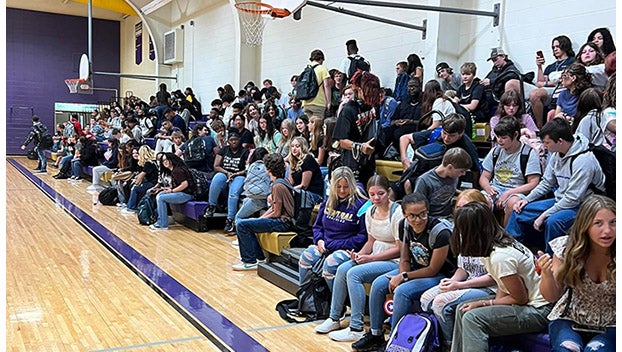Longwood University project will help Lunenburg County schools
Published 4:15 pm Friday, April 21, 2023
|
Getting your Trinity Audio player ready...
|
VICTORIA – A recent grant given to Longwood University could end up helping both schools in Lunenburg County and those in the surrounding areas. The National Science Foundation gave Longwood $1.45 million to recruit and support teachers who want to work in science, technology, engineering or math (STEM) in Southside and Southwest Virginia.
“In general, schools in the area and across the entire country are experiencing a shortage of STEM teachers,” said Longwood associate professor of mathematics education Dr. Leah Shilling-Stouffer. “Addressing this critical need is at the heart of our Noyce grant.”
She’s referring to the Robert Noyce Teacher Scholarship Program grant, which will fund a five-year project that aims to serve the national need for preparing and retaining highly qualified science and mathematics teachers to teach in rural, high-need school districts. The grant will be used to provide scholarships and academic support to 20 undergraduate students, 14 of whom will be transfers from the Virginia Community College System who will major in biology, chemistry, mathematics or physics and pursue a STEM teaching career.
Shilling-Stouffer is the lead on this project, but helping her is a team of Longwood faculty. That includes Dr. Melissa Rhoten, professor of chemistry; Dr. Patricia Horne Hastings, associate professor of elementary education; and Dr. Sharon Emerson-Stonnell, professor of mathematics, to found the InVEST in STEM program (Increasing the Value of Education for Secondary Teachers in STEM). The program’s “grow-your-own” approach of recruiting students from their local areas and then later placing them as STEM teachers in these same areas is designed to help solve the teacher shortage this area is currently facing.
“I’ve been here for 13 years and this is probably my greatest professional achievement thus far,” said Shilling-Stouffer. “Getting the chance to work and collaborate with my colleagues across different departments and across different colleges — there’s just nothing like that. We are all rowing the boat in the same direction because we know this funding will help the Southside region.”
Starting the process
Shilling-Stouffer said that her team will use the upcoming academic year this fall as a planning session of sorts.
“We will be reaching out to Prince Edward and other local school districts to gather more information from them, including their specific STEM needs beyond the shortages.”
She added the group will look at how they can help each district address those needs, while developing curriculum and recruitment materials.
Where will the teachers come from?
Longwood partnered with Patrick & Henry Community College in Martinsville and Virginia Western Community College in Roanoke to get the grant, which also aims to build pathways from the two community colleges to a four-year STEM degree and teaching licensure. “With this grant and Longwood’s partnership with two community colleges, our faculty and staff have been truly innovative in seeking to address a critical need, while also building on our historic strength in teacher education,” said Dr. Larissa Smith, Longwood provost and vice president for academic affairs. “This funding will help address teacher shortages in rural Southside and southwest Virginia by recruiting students in these areas and preparing them to become successful STEM teachers. I am grateful for the initiative and hard work of our faculty in applying for this grant and delighted that the NSF is continuing to make an investment in our approach.”
More about the Longwood University project
The Longwood University students supported by the Noyce funding should enter the workforce with limited or no student debt. These students will teach at a high-need school for two years for every year of funding earned.
“STEM teacher education has been a passion of mine personally, as well as many of my colleagues,” said Bryan Snare, program head of mathematics at Virginia Western Community College, in a statement. “We believe this grant will be incredibly impactful for the students of the Roanoke Valley. For us professionally, there is no better way to extend our reach than to teach future teachers.”
Dr. Christopher Wikstrom, vice president of academic and student success services at Patrick & Henry Community College, echoed the same sentiment.
“We are honored and excited to be one of the community college partners for the Noyce grant,” he said. “We look forward to facilitating our role to increase STEM teachers in our service region.”
Including the Noyce grant, Longwood faculty members have received more than $4.6 million in grant funding from the NSF in the last four years.
The Noyce program supports talented STEM undergraduate majors and professionals who want to become K-12 STEM teachers and supports experienced K-12 teachers who want to become STEM master teachers in high-need school districts.



